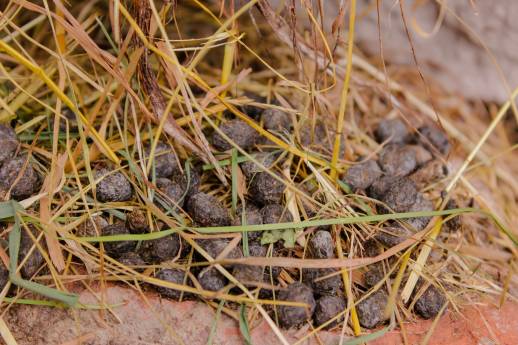Connect with a verified veterinarian in minutes. Licensed vets are available 24/7 to answer your questions. No need to worry about your furry family member.
African violets are beautiful houseplants with velvety leaves and beautiful flowers. But when you have a dog, there’s a chance he may try to eat the plant. He may be curious about the African violet or maybe even hungry. But what happens if a dog eats an African violet?
Has your dog eaten an African violet? Are you worried the African violet will make your dog sick? If so, you’ve come to the right place. We understand it can be scary when your dog eats something like this.
We’ve gathered information about African violets and whether they can make a dog sick. Let’s get started!
What is an African Violet?
African violets (also called Saintpaulia) are a species of plant in the Gesneriad family. The plants were discovered von St. Paul in 1892 by Baron in Tanzania and Kenya. Since that time, African violets have become a favorite houseplant around the world.
These beautiful plants grow indoors and need moderate temperatures and light. The plants have velvety green leaves that form a clump, with the flower stems coming out of the middle of the leaves. The flowers also grow in a close groups and come in a wide range of colors.
While African violets are safe to have in the house, what happens if a dog happens to munch on one? Can an African violet make a dog sick?
African Violets & Dogs
Thankfully, African violets are not poisonous to dogs; however, the plants can still make a dog sick. The problem is that African violet plant leaves contain sap (saponins). The saponins can cause GI upset in a dog if he eats the leaves.
Another problem is that some dogs may be allergic to African violets. This may not be very common, but it’s best to be aware of this issue.

Review symptoms, medications & behavior to keep your pets healthy with a Vet Online in just minutes.
Ask a Vet Live NowSymptoms of African Violet Ingestion in Dogs
You may notice these symptoms if your dog has eaten African violets:
- Diarrhea
- Vomiting
- Stomach cramps
These symptoms may pass on their own; however, if the GI symptoms last longer than 12 to 24 hours, it’s time to call the vet. The problem is that persistent vomiting and diarrhea can cause dehydration in your fur baby.
Treatment of African Violet Ingestion in Dogs
The vet may try to induce vomiting and use activated charcoal to remove the African violet’s saponins from your dog’s system.
In addition, the vet has medications that can stop diarrhea, vomiting, and stomach cramps. And if your canine companion has become dehydrated, the vet may give him an IV with fluids.
The prognosis is that most dogs will make a full recovery after eating African violets! In the future, it’s best to keep African violets and all houseplants out of your dog’s reach. You don’t want him to eat leaves and flowers again! You’ll both be happier for it!

Connect with a verified veterinarian in minutes. Licensed vets are available 24/7 to answer your questions. No need to worry about your furry family member.

Julie
Julie is a graduate of the University of North Carolina, Wilmington, where she studied Animal science. Though contrary to the opinion of her parents she was meant to study pharmacy, but she was in love with animals especially cats. Julie currently works in an animal research institute (NGO) in California and loves spending quality time with her little cat. She has the passion for making research about animals, how they survive, their way of life among others and publishes it. Julie is also happily married with two kids.
Review symptoms, medications & behavior to keep your pets healthy with a Vet Online in just minutes.
Ask a Vet Live Now





